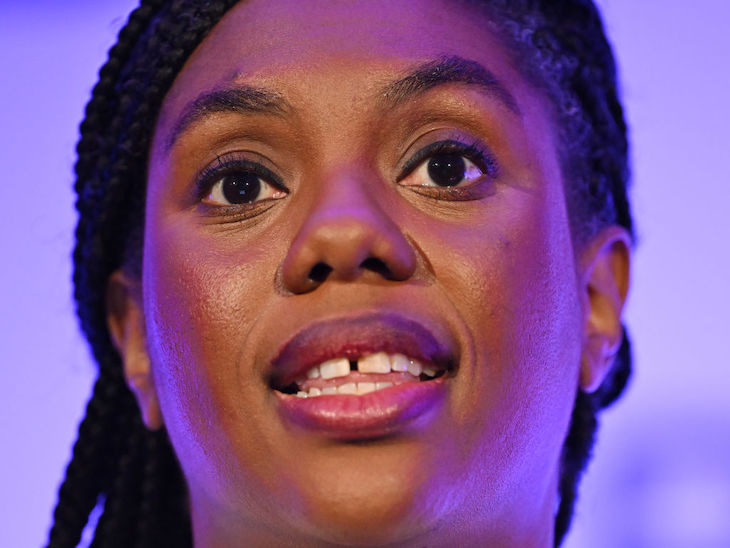It was quite possible that Kemi Badenoch could have proved an instant hit with the British public and taken the Tories straight into a sizeable opinion poll lead. External factors could have fallen in her favour, enabling her not only to capitalise on the unpopularity of Keir Starmer and Labour, but also to win back support from Nigel Farage and Reform. There are several combinations of circumstances which could have led to such an outcome. These versions of the future would have seen Badenoch swiftly become regarded by voters as the obvious Next Big Thing that Britain needs to lift it out of the doldrums, Thatcher-style. But it hasn’t panned out like that.
The thinking is that there is no point trying to stop the Reform surge
Two big events have occurred during her first weeks as Tory leader which have taken the wind out of Badenoch’s sails and put it into Farage’s. First, there was the paradigm-busting nature and extent of Donald Trump’s election victory, at which Farage had a ringside seat.
Secondly, there were those scarcely believable upward revisions in the immigration volumes over which Boris Johnson and Rishi Sunak had presided and the sense of betrayal they re-ignited in the electorate.
So now expectations are reversed. Most good judges think Reform will surge to new heights early next year with Labour already widely loathed and the Tories occupying the status Les Dawson once reserved for his late mother-in-law: gone but not forgiven.
Reform’s polling is already tracking sharply upwards and it is once more attracting notable defections from the Conservative fold. At Tory Christmas drinks dos across Westminster this week, the talk was all about who will next join the Light Blue peril. The consensus is already that Badenoch has been a disappointment: too cautious, too conventional and failing to embrace the rebellious spirit of the times.
What is Badenoch to do? She has two broad options. One would be to go in for an early reset, Keir Starmer-style. This would see her seek to match Farage punch for punch on immigration, climate change policy and other populist right touchstone issues.
Despite growing anxiety among her MPs about the possibility of Reform actually bursting into a nationwide poll lead in time for the county council elections in May, she seems most unlikely to go down that path.
Instead, an approach being referred to as ‘Operation Slow Burn’ is finding favour. This requires persuading inveterate panickers in the Tory ranks – or perhaps that should be invertebrate panickers – to hold their nerve.
The thinking is that there is no point trying to stop the Reform surge – that it is already baked-in and could well last up to and beyond the Welsh Senedd elections of 2026.
The way to shore up Tory prospects, Slow-Burners contend, is simply to have more credible and robust policies to offer voters than the insurgent party does by the second half of this parliament. Badenoch is good at holding her nerve: witness her refusal to match Robert Jenrick’s eye-catching immigration pledges during the leadership contest.
Her Slow-Burners believe that with the extra success coming Reform’s way will come extra scrutiny that will, in time, take some of the air out of its balloon. Meanwhile, they hope Badenoch will gain in authority and credibility by sticking to her project to re-engineer the Conservative offer over the next three years.
Badenoch is good at holding her nerve
After all, while Reform grabbed the runner-up spot in 98 seats in July – 89 of them in constituencies won by Labour – the Tories came second to Labour in 219 seats and second to the Lib Dems in another 64.
So if the dominant impulse among right-leaning voters at the next general election is simply a determination to get Labour out, then the Tories can hope to sell the idea that they are best-placed to do the job in more than twice as many seats as Reform is.
Of course, this will depend on Reform’s surge not having been so huge and so durable as to crash that logic. It will also need right-leaning voters to believe they can rely on a Badenoch-led Tory party to be notably more conservative than the party was in office from 2010-2024 if it gets another sniff of power. Getting candidate selection right for winnable seats is therefore about to take on enormous and totemic importance.








Comments